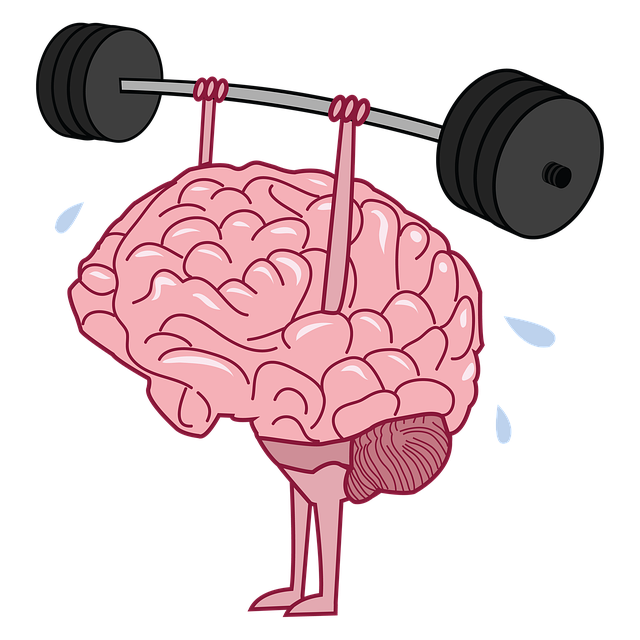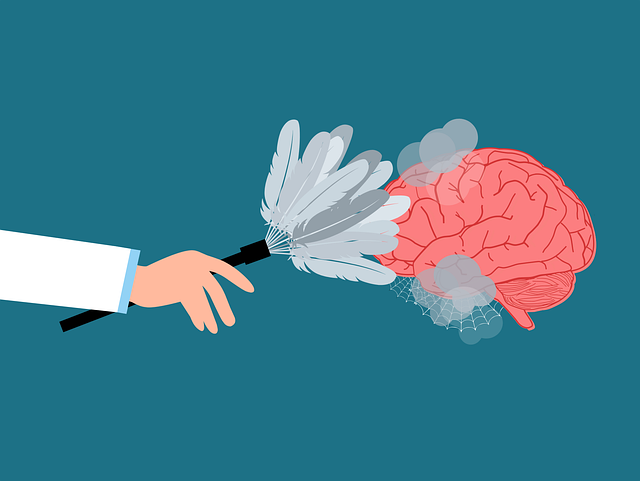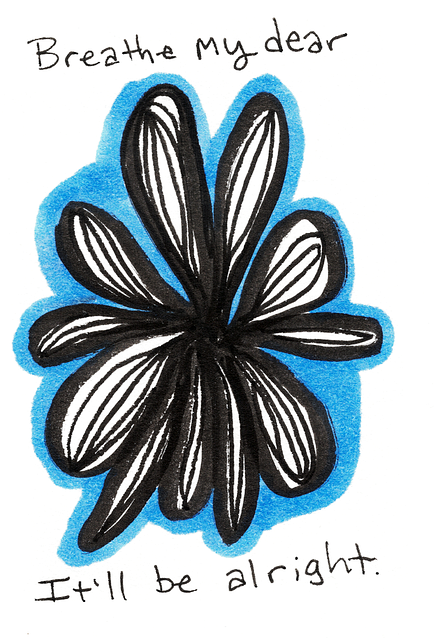Mental illness stigma significantly impacts individuals with conditions like depression and anxiety, leading to social isolation and decreased self-esteem. In Highlands Ranch, Adjustment Disorder Therapy and The Mental Wellness Podcast Series Production combat this through education, empathy building, and open conversations, dispelling myths and encouraging early intervention. Key strategies include mental health advocacy, policy changes enhancing access to quality care, mindfulness meditation, and integrating mental health education into schools and community centers. Specialized services like Highlands Ranch Adjustment Disorder Therapy play a crucial role in breaking stigma, fostering understanding, and empowering individuals to recover and build resilience.
Mental illness stigma reduction is a crucial effort in fostering supportive communities. This article navigates the intricate landscape of mental health stigma, highlighting its profound impact on individuals and society at large. We dispel common misconceptions surrounding mental disorders, emphasizing the importance of understanding and empathy. Through exploring effective advocacy strategies and educational initiatives, we offer insights into combating stigma. Additionally, we showcase how Highlands Ranch Adjustment Disorder Therapy provides a transformative path to support and recovery, inspiring hope for those facing mental health challenges.
- Understanding Mental Illness Stigma: Dispel Common Misconceptions
- The Impact of Stigma on Individuals and Communities
- Strategies for Effective Mental Health Advocacy
- Incorporating Education and Awareness in Stigma Reduction
- Highlands Ranch Adjustment Disorder Therapy: A Path to Support and Recovery
Understanding Mental Illness Stigma: Dispel Common Misconceptions

Understanding Mental Illness Stigma involves dispel common misconceptions that often cloud public perception. Many people associate mental illness with weakness or personal failings, but it’s crucial to recognize that mental health conditions are medical issues similar to physical ailments. Just as a broken leg requires treatment, depression, anxiety, and other disorders demand professional help and support.
In Highlands Ranch, Adjustment Disorder Therapy has emerged as a powerful tool in the fight against stigma. Through self-awareness exercises and empathy building strategies, individuals can gain insights into their own mental health experiences and those of others. The Mental Wellness Podcast Series Production also plays a vital role by sharing personal narratives, providing educational content, and fostering open conversations that challenge stereotypes and promote understanding.
The Impact of Stigma on Individuals and Communities

The impact of stigma on individuals suffering from mental health conditions is profound and far-reaching. It often leads to social isolation, as those affected may feel ashamed or embarrassed about their struggles, pushing them away from seeking help or support. This sense of alienation can deeply affect self-esteem and confidence, creating a barrier to recovery and personal growth. In communities, stigma perpetuates misconceptions and fear, which can result in discriminatory practices and limited access to quality healthcare services, such as Highlands Ranch Adjustment Disorder Therapy.
Reducing the stigma surrounding mental illness is crucial for fostering inclusive environments. Public awareness campaigns play a pivotal role in this effort by educating the public about the realities of mental health challenges. By promoting understanding and empathy, these initiatives can help dispel myths, encourage early intervention, and ultimately boost confidence in those affected as they navigate their journey towards recovery and self-improvement.
Strategies for Effective Mental Health Advocacy

Mental health advocacy is a powerful tool to combat stigma and promote understanding. Effective strategies involve raising awareness through educational campaigns that dispel myths surrounding mental illnesses like Adjustment Disorder, commonly treated in Highlands Ranch therapy centers. Engaging communities, schools, and workplaces with evidence-based information can help reduce the isolation often experienced by those struggling with their mental health.
Advocacy also includes pushing for policy changes that improve access to quality mental healthcare. This involves supporting initiatives that enhance the cultural competency of healthcare providers through specialized training, ensuring they are equipped to serve diverse populations. Additionally, implementing risk assessment tools for mental health professionals can help identify and address potential risks early on, thereby enhancing patient safety and outcomes. Practices like mindfulness meditation, integrated into therapy sessions, have been shown to be beneficial in managing symptoms and fostering resilience.
Incorporating Education and Awareness in Stigma Reduction

Education and awareness play a pivotal role in reducing stigma surrounding mental illness, especially in communities like Highlands Ranch where access to specialized services is crucial. Integrating mental health education into schools, workplaces, and community centers can foster understanding and empathy, breaking down barriers associated with seeking help. This involves hosting workshops and seminars that not only teach about various mental health conditions but also offer practical tools for coping, such as compassion cultivation practices and stress management techniques. By normalizing conversations around mental wellness, individuals can develop a deeper sense of self-worth and resilience, as evidenced by the growing popularity of self-esteem improvement programs. Such proactive measures are essential steps towards creating an inclusive environment where those facing challenges like Adjustment Disorder can thrive with appropriate support and understanding.
Highlands Ranch Adjustment Disorder Therapy: A Path to Support and Recovery

In Highlands Ranch, Adjustment Disorder Therapy has emerged as a beacon of hope for individuals grappling with mental health challenges. This specialized form of therapy focuses on helping people manage and overcome difficulties resulting from significant life changes or traumatic events. By fostering a supportive environment, therapists equipped to handle adjustment disorders guide clients towards understanding and coping with their emotions effectively. The therapeutic process involves evidence-based techniques tailored to each individual’s unique needs, promoting resilience and personal growth.
Highlands Ranch Adjustment Disorder Therapy goes beyond mere symptom management; it empowers individuals to navigate life transitions, rebuild after traumas, and achieve lasting mental wellness. This approach integrates various therapeutic modalities, ensuring clients receive comprehensive care. Moreover, integrating Healthcare Provider Cultural Competency Training, Public Awareness Campaigns Development, and Mental Wellness Journaling Exercise Guidance enhances the overall effectiveness of these support systems. Through such initiatives, Highlands Ranch is making significant strides in reducing stigma associated with mental illness, encouraging early intervention, and promoting recovery.
Mental illness stigma reduction is a multifaceted effort that requires understanding, education, and advocacy. By dispelling common misconceptions and fostering awareness, we can create a more supportive environment for individuals facing mental health challenges. Strategies like those highlighted in the article, including Highlands Ranch Adjustment Disorder Therapy, offer hope and pathways to recovery. Through collective efforts, we can break down barriers and ensure everyone receives the care they need without fear of judgment.












